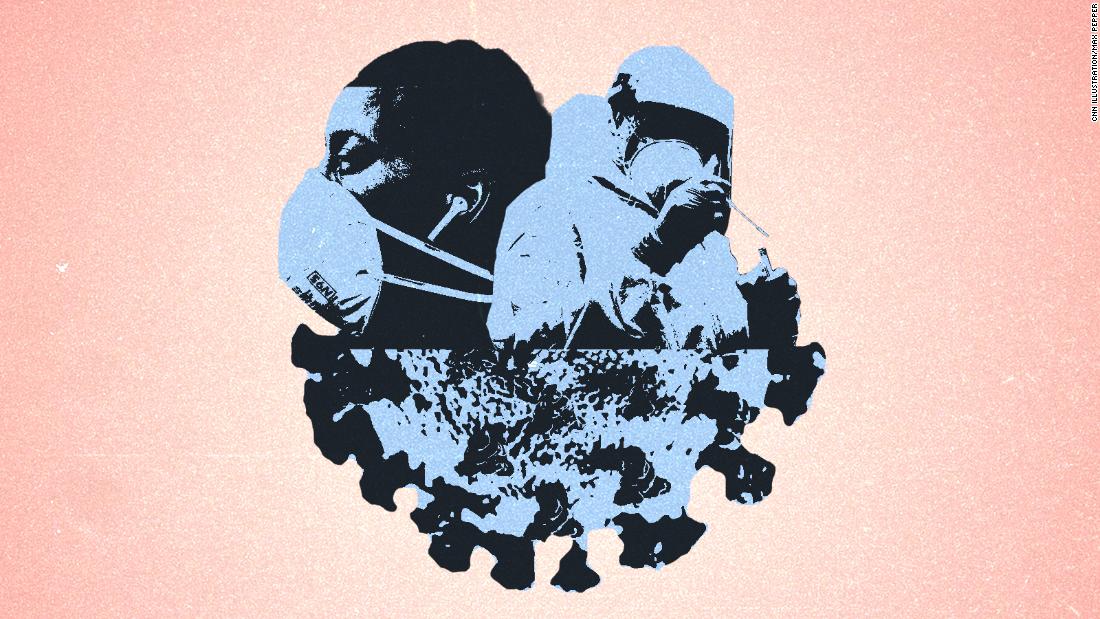You are here
Sytate and local health departments are hard-pressed and slow to spend Covid cash for underserved
Primary tabs
Tue, 2022-05-17 17:25 — mike kraft
 Overwhelmed health departments are hard-pressed to spend Covid cash for underserved The Biden administration in March 2021 announced it was investing $2.25 billion to address covid health disparities, the largest federal funding initiative designed specifically to help underserved communities hardest hit by the virus. CNN
Overwhelmed health departments are hard-pressed to spend Covid cash for underserved The Biden administration in March 2021 announced it was investing $2.25 billion to address covid health disparities, the largest federal funding initiative designed specifically to help underserved communities hardest hit by the virus. CNN
 Overwhelmed health departments are hard-pressed to spend Covid cash for underserved The Biden administration in March 2021 announced it was investing $2.25 billion to address covid health disparities, the largest federal funding initiative designed specifically to help underserved communities hardest hit by the virus. CNN
Overwhelmed health departments are hard-pressed to spend Covid cash for underserved The Biden administration in March 2021 announced it was investing $2.25 billion to address covid health disparities, the largest federal funding initiative designed specifically to help underserved communities hardest hit by the virus. CNN KHN) The Biden administration in March 2021 announced it was investing $2.25 billion to address covid health disparities, the largest federal funding initiative designed specifically to help underserved communities hardest hit by the virus.
Two months later, the Centers for Disease Control and Prevention awarded grants to every state health department and 58 large city and county health agencies. The money is intended to help limit the spread of covid-19 among those most at risk in rural areas and within racial and ethnic minority groups, as well as improve their health.
A year later — with covid having killed 1 million people in the U.S. since the start of the pandemic and hospitalizing millions more — little of the money has been used, according to KHN requests for information from about a dozen state and county agencies' grants. While some states and localities have allocated large portions of the CDC money for projects, they still have spent only a small proportion.
Missouri's health department has not spent any of its $35.6 million. Wisconsin, Illinois, and Idaho — whose state health departments each received between $27 million and $31 million — have used less than 5% of their grant money.
Pennsylvania's health department has used about 6% of its nearly $27.7 million grant.
California's health department has spent just over 10% of its $32.5 million funding.
The public health agencies give a litany of reasons for that: They need time to hire people. They blame their state's long budget process. They say it takes time to work with nonprofit organizations to set up programs or for them to put the money to use. They're already tapping other federal dollars to fight covid disparities.
Mounting unspent covid relief dollars is one of the key reasons Republicans in Congress oppose Democrats' efforts to appropriate billions more federal dollars for managing the pandemic.
The slow disbursement also highlights the ripple effects of years of neglect for public health systems and the boom-bust cycle of legislative funding. "They are investments that overwhelm a system that has been starved for so long," said Dr. Usama Bilal, an assistant professor of epidemiology and biostatistics at Drexel University in Philadelphia.
...
Country / Region Tags:
General Topic Tags:
Problem, Solution, SitRep, or ?:
Groups this Group Post belongs to:
- Private group -



Recent Comments